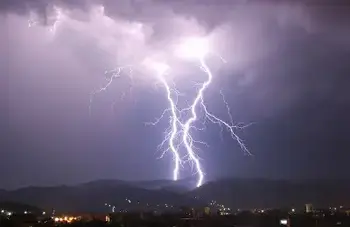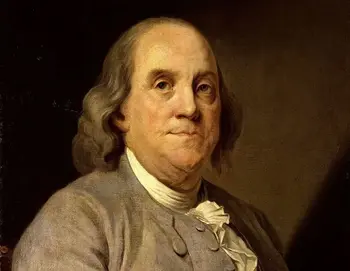Thomas Edison Electricity
Thomas Edison and Electricity are almost synonymous. He was one of the most prolific inventors in history and was born in Milan, Ohio, on February 11, 1847. With little formal education, Thomas Edison gained experience as a telegraph operator and then went on to invent several electricity inspired devices like the phonograph, the incandescent light bulb, and a forerunner of the movie projector. In West Orange, New Jersey, he also created the world's first industrial research laboratory, where he employed dozens of workers to systematically investigate a given subject. However, perhaps his greatest contribution to the modern industrial world came from his work in electricity. He developed a complete electrical distribution system for light and power, set up the world's first electricity generation plant in New York City, and invented the alkaline battery, the first electric railroad, and a host of other electricity inventions that laid the basis for the modern electric world. He continued to work into his eighties, and acquired a record 1,093 patents in his lifetime. He died in West Orange on October 18, 1931.
For Thomas Edison, Electricity was his passion. At age 29, he commenced work on the carbon transmitter, which ultimately made Alexander Graham Bell's amazing new "articulating" telephone (which by today's standards sounded more like someone trying to talk through a kazoo than a telephone) audible enough for practical use. Interestingly, at one point during this intense period, Thomas Edison was as close to inventing the telephone as Bell was to inventing the phonograph. Nevertheless, shortly after Thomas Edison moved his laboratory to Menlo Park, N.J. in 1876, he invented - in 1877 - the first phonograph.
In 1879, extremely disappointed by the fact that Bell had beaten him in the race to patent the first authentic transmission of the human voice, Thomas Edison now "one upped" all of his competition by inventing the first commercially practical incandescent electric light bulb.
And if that wasn't enough to forever seal his unequaled importance in technological history, he came up with an invention that - in terms of its collective affect upon mankind - has had more impact than any other. In 1883 and 1884, while beating a path from his research lab to the patent office, he introduced the world's first economically viable system of centrally generating and distributing electric light, heat, and power. (See "Greatest Achievement?") Powerfully, instrumental in impacting upon the world we know today, even his harshest critics grant that it was a Herculean achievement that only he was capable of bringing about at this specific point in history.
By 1887, Thomas Edison was recognized for having set up the world's first full fledged research and development center in West Orange, New Jersey. An amazing enterprise, its significance is as much misunderstood as his work in developing the first practical centralized power system. Regardless, within a year, this fantastic operation was the largest scientific testing laboratory in the world.
In 1890, Edison immersed himself in developing the first Vitascope, which would lead to the first silent motion pictures.
And, by 1892, his Edison General Electric Co. had fully merged with another firm to become the great General Electric Corporation, in which he was a major stockholder.
At the turn-of-the-century, Edison invented the first practical dictaphone, mimeograph, and storage battery. After creating the "kinetiscope" and the first silent film in 1904, he went on to introduce The Great Train Robbery in 1903, which was a ten minute clip that was his first attempt to blend audio with silent moving images to produce "talking pictures."

By now, Edison was being hailed world-wide as The wizard of Menlo Park, The father of the electricity age," and The greatest inventor who ever lived." Naturally, when World War I began, he was asked by the U. S. Government to focus his genius upon creating defensive devices for submarines and ships. During this time, he also perfected a number of important inventions relating to the enhanced use of rubber, concrete, and ethanol.
By the 1920s Edison was internationally revered. However, even though he was personally acquainted with scores of very important people of his era, he cultivated very few close friendships. And due to the continuing demands of his career, there were still relatively long periods when he spent a shockingly small amount of time with his family.
It wasn't until his health began to fail, in the late 1920s, that Edison finally began to slow down and, so to speak, "smell the flowers." Up until obtaining his last (1,093rd) patent at age 83, he worked mostly at home where, though increasingly frail, he enjoyed greeting former associates and famous people such as Charles Lindberg, Marie Curie, Henry Ford, and President Herbert Hoover etc. He also enjoyed reading the mail of admirers and puttering around, when able, in his office and home laboratory.
Thomas Edison died At 9 P.M. On Oct. 18th, 1931 in New Jersey. He was 84 years of age. Shortly before passing away, he awoke from a coma and quietly whispered to his very religious and faithful wife Mina, who had been keeping a vigil all night by his side: "It is very beautiful over there..."
Recognizing that his death marked the end of an era in the progress of civilization, countless individuals, communities, and corporations throughout the world dimmed their lights and, or, briefly turned off their Thomas Edison electricity in his honor on the evening of the day he was laid to rest at his beautiful estate at Glenmont, New Jersey. Most realized that, even though he was far from being a flawless human being and may not have really had the avuncular personality that was so often ascribed to him by myth makers, he was an essentially good man with a powerful mission.... Driven by a superhuman desire to fulfill the promise of research and invent things to serve mankind, no one did more to help realize our Puritan founders dream of creating a country that - at its best - would be viewed by the rest of the world as "a shining city upon a hill."



